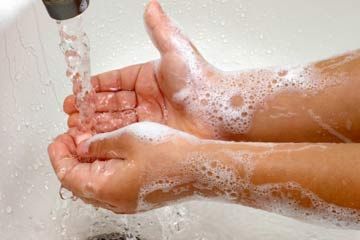
Good personal hygiene is key to preventing infection and disease and maintaining general cleanliness. Surprisingly, one study showed that only 77 percent of people wash their hands after using public restrooms and only 34 percent washed after coughing or sneezing. Learn more on the next page.
Advertisement
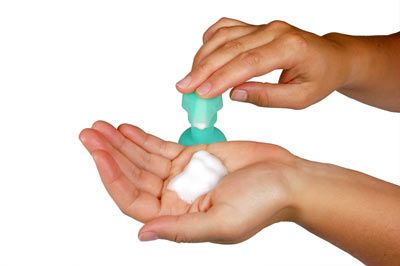
Is antibacterial soap any better than regular soap? According to the Centers for Disease Control and Prevention (CDC), antibacterial soaps are not necessary, but washing your hands thoroughly with ordinary soap and warm water is one of the most effective ways to ward off infection. Don't forget to wash your face as well. Get some tips on the next page.
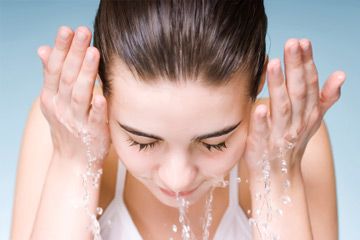
Washing your face a couple of times a day can help loosen blackheads up and clean out your pores. The black substance in blackheads, however, has nothing to do with dirt. It's actually the result of a combination of sebum and dead skin cells. Learn more about preventing acne next.

Poor hygiene doesn't cause blemishes, but practicing good hygiene can help prevent acne -- especially body acne. Cleansing your skin daily and exfoliating weekly can keep pores from getting clogged. Learn more as we head to the shower.
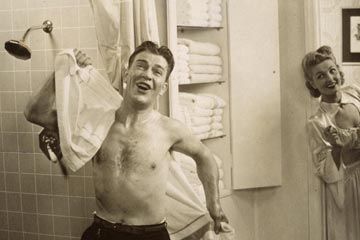
Anyone who's ever taken a warm bath or shower at the end of a tough day knows the calming influence it exerts. It also improves your body smell, reduces the chance of infection and prevents skin itchiness. Not sure whether to use soap or body wash while de-stressing? Get tips on the next page.
Advertisement
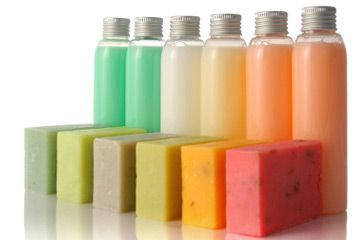
Body washes are gentler than most other soaps because they contain large amounts of petrolatum, an ingredient that moisturizes and lubricates the skin. But while the gentle nature of liquid cleansers makes them ideal for dry or sensitive skin, their composition can make them less effective at removing oil, dirt and odor from your body. If you have oily skin, a deodorant or antibacterial bar soap may be a better choice for you. To maximize your cleansing, check out the tools on the next page.
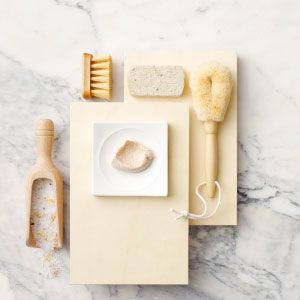
Exfoliating removes dead skin cells on the surface of skin, which is a key element of daily skin care. The average person should exfoliate twice a week, but you may need to exfoliate more if you are older or live in a hot climate. You can exfoliate with a washcloth, body scrub or loofah. Just remember to clean your cleaning tools! Learn about the dangers of dirty loofahs on the next page.
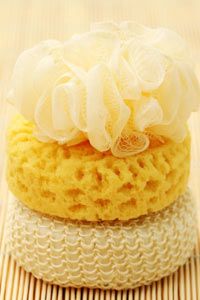
Be sure to replace bath sponges and loofahs regularly to avoid skin irritations due to bacteria. One study found that the amount of bacteria grew exponentially in 24 hours when exposed to a loofah sponge. Next, learn about how often you should wash your hair.
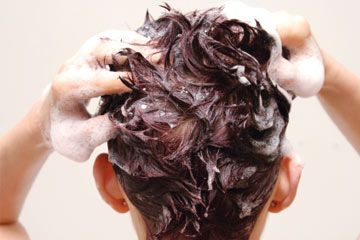
Frequent shampooing can sometimes be counterproductive because by trying so hard to get rid of the oils in your hair, your body reacts by producing even more of it. While how often you wash is a personal preference, in the 1950s, it was common for women to only wash their hair weekly. They got along just fine. If you have trouble with dandruff, see how you should wash your hair next.
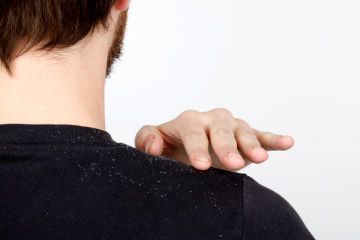
If you have dandruff, doctors suggest using anti-dandruff shampoo daily, leaving the product in your hair for five minutes and rinsing completely. Know what's causing your dandruff to pick the appropriate type of shampoo for treatment. After you've washed up in the shower, don't linger too long. See why on the next page.
Advertisement
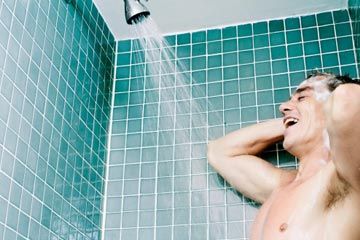
The longer and hotter the shower, the faster oils are stripped from skin and the more moisture you're likely to lose. You may notice red and itchy skin, a sure sign your skin has started to dry out. That's where moisturizing can help. See the next page to learn more.
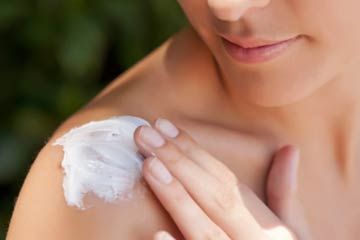
According to researchers, a good skin cream acts as a short-term shield that helps back up the skin barrier. To get the most out of your moisturizer, apply it just after a bath when you've towel blotted your skin. For an added benefit, use a moisturizer with sunscreen. Don't forget about moisturizing your lips too! See the next page to learn more.
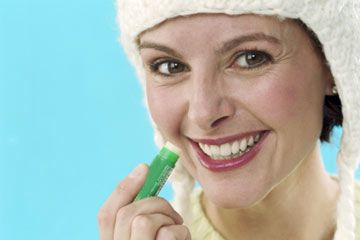
You should always protect your skin from the sun's UV rays, but this is especially true for your lips since they don't produce as much melanin. Use a lip balm that moisturizes with at least SPF 15. Once you're clean and moisturized, learn how to stay fresh all day on the next page.
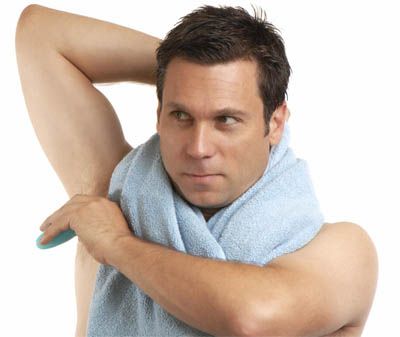
We blame sweat for our odor, but what you smell after you work out or when you're stressed is the odor of bacteria metabolizing the sweat, not the sweat itself. Most people apply an antiperspirant to stop sweat and smells. See another smell-inhibitor next.

If you're more concerned about preventing smells than stopping sweat, use a natural deodorant, which often doesn't contain chemical ingredients such as aluminum, parabens, synthetic fragrances and triclosan. Body odor can also be in the form of bad breath. See how to avoid it next.
Advertisement
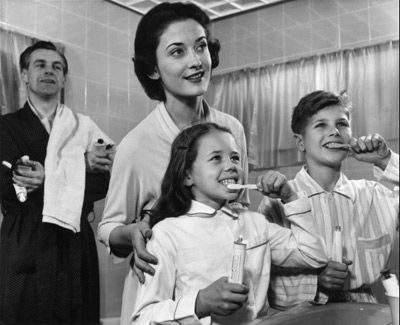
Brush your teeth often to defend against cavities, periodontal disease, plaque and bad breath. The process should take at least three minutes -- and don't forget to clean your tongue and the roof of your mouth! Toothpaste and floss are items you should use daily. Learn more on the next page.
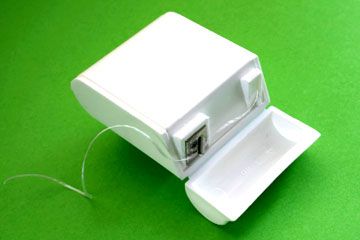
Flossing is the prime defense against periodontal disease by removing bacteria and plaque that causes bad breath and dental problems. You should floss after each meal or, at the very least, once a day.
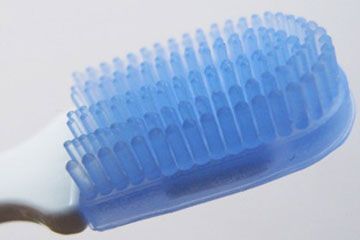
You can also use a gum brush for an extra clean mouth and to gently stimulate your gums to keep them healthy. Using your fingers is another option, just be very careful with toothbrushes, as a major cause of gum recession and injury is brushing too hard. See the next page for one last tip for a fresh mouth.

The ADA doesn't specifically recommend using mouthwash in your daily routine, but if you want to simply freshen your breath, try a basic mouthwash that has a low alcohol content. If you want to help prevent gum disease and plaque buildup, get an antibacterial mouthwash. Keep in mind that mouthwashes can also dry out the mouth, which can create other dental problems. Now that we've covered head to toe cleaning, learn about basic grooming next.
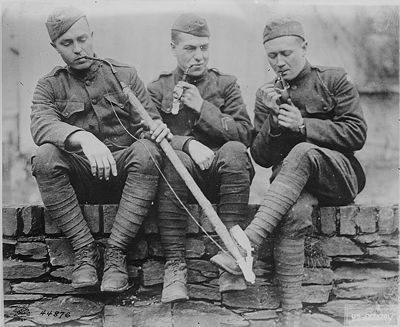
Being clean-shaven became fashionable during World War II when United States soldiers were required to shave their beards so that their gas masks would fit properly. Gillette also introduced its first "safety" razor around the same time, making it easy for men to keep facial hair trimmed. Get shaving tips next.
Advertisement
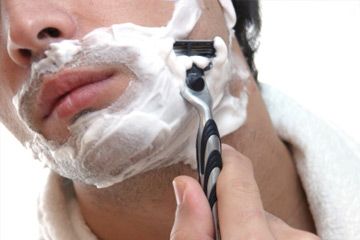
It's best to shave after or at the end of your shower to take advantage of how the steam has opened your pores, but applying a hot towel to your clean face for three to five minutes works, too. Choose a thick, moisturizing shaving gel for the best results.
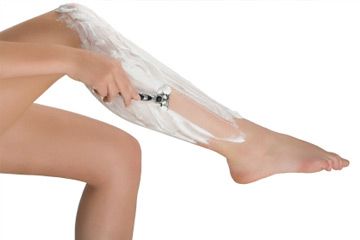
For the ladies, to avoid irritation when shaving your legs, select a moisturizing gel or cream that's alcohol-free, use a clean, sharp blade and shave in the same direction that hair grows. If you're brave, check out the hair removal solution on the next page.
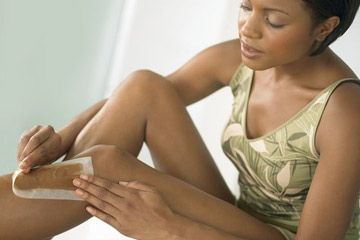
Some women wax for smoother skin. Waxing isn't always the most comfortable for those with sensitive skin, but if you decide to try it, look for soy-based wax instead of waxes made from chemicals. Caring for your hands and feet is also a good hygiene habit. Learn more on the next page.
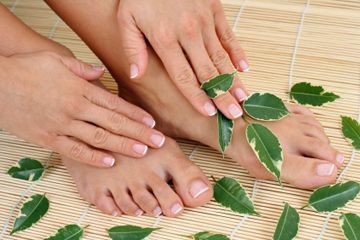
Men and women alike enjoy manicures, and strong, healthy nails reflect a strong, healthy you. Keep them neat with frequent trims, daily moisturizing and cleaning, and be sure to resist the urge to bite hangnails. We may use and see our hands more often, but taking care of our feet is important, too.
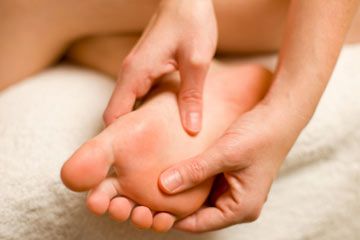
Good foot skin care contributes to overall good health, but if you're diabetic, excellent foot care is absolutely vital. Wash and dry feet carefully and massage lotion into your feet to increase circulation and keep your skin soft. Avoid ingrown nails by always trimming nails in a straight line. For more personal hygiene tips, see our Daily Skin Care Regimen articles.
Advertisement